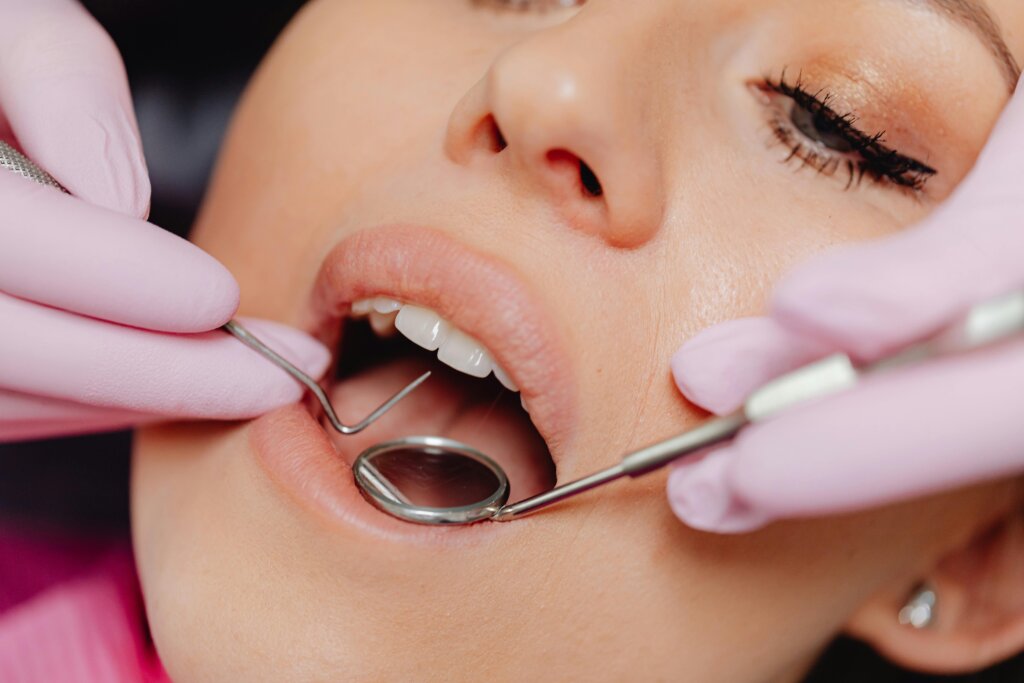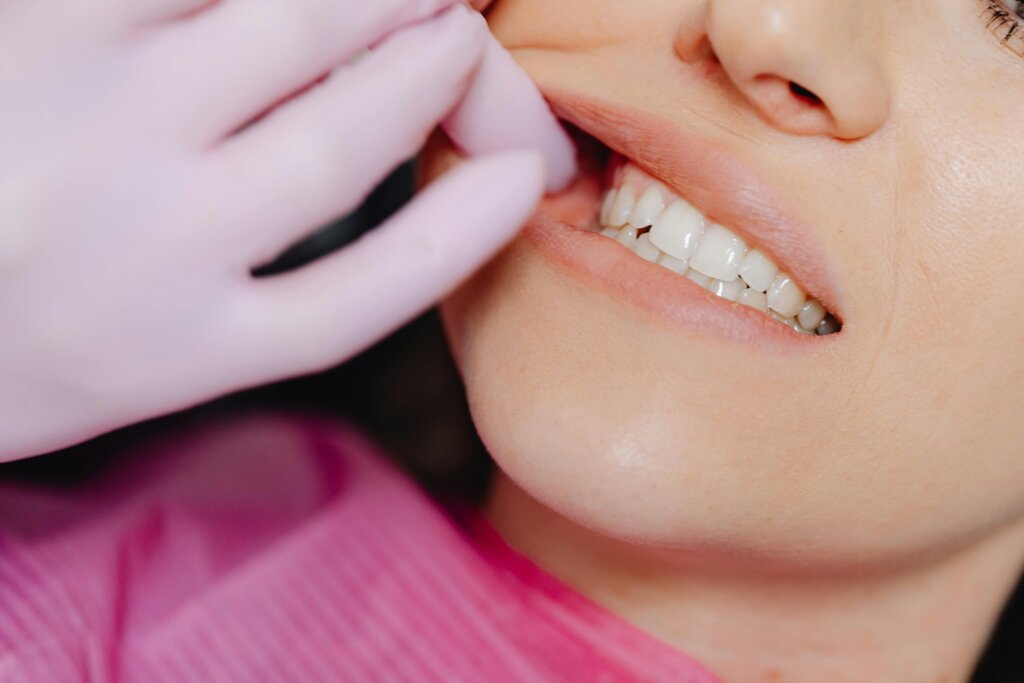So,let’s start our journey into depression after “tooth extraction”. Now let’s get the picture: Your tooth has been removed and you feel like the world has dimmed a bit, right? This is a common problem. So let’s talk about this topic in a little depth.
Let us talk about depression after tooth extraction, first of all let us understand what it is. Tooth extraction means that your teeth are removed for any number of reasons, such as decay or injury. It is a small procedure, but its impact is big.
Now, let’s talk about depression. Depression after tooth extraction is a common phenomenon. After you have a tooth removed, you may feel like something is missing, and this can affect your mood and mental health.
Therefore, it is very important to address this post-extraction depression. There’s nothing different about it, friend. The job of our brain is to give us emotional and mental responses, so when something bad happens, we feel something like depression.
So remember, post-extraction depression is a common problem and it is important to deal with it. If you also feel like this, then don’t worry, we will help you with this. To understand this, stay with us further.
Understanding Tooth Extraction

Now let us talk in more depth about tooth extraction. It is important to understand the process of tooth extraction so that you get the right guidance and are prepared.
First of all, let’s talk about the process of tooth extraction. Tooth extraction is a medical procedure in which one or more teeth are removed.
This is done by a dentist or oral surgeon. Local anesthesia is given in the procedure so that you do not have any kind of pain or discomfort. Then, the tooth is carefully removed, and sometimes stitches are placed if needed.
Now, let’s talk about the common reasons for tooth extraction. There are many reasons for tooth extraction, such as severe tooth decay, gum disease, or tooth injury.
Sometimes extraction is also required due to overcrowding, in which teeth overlap each other and there is no space available. In some cases, extraction of wisdom teeth is also required because they can disturb the alignment of the jaw.
So, these were some important points that will help you understand the process and reasons for tooth extraction. If you also need to have your tooth removed, then take proper guidance from your dentist and get complete information about the procedure.
Psychological Impact of Tooth Loss

Emotional Response to Losing a Tooth
Now let us talk about the mental impact of tooth loss. When we lose a tooth, its impact is not just physical, but also has a deep impact on our mind and heart.
First of all, let us understand what is our emotional response to tooth loss. Tooth loss is a common problem, but its effect is different on everyone.
When someone loses a tooth, he experiences a change in his self-image, and someone experiences pain or discomfort. Some people even feel that their beautiful smile has been spoiled.
During this time, many types of thoughts run through our mind. Some people feel embarrassment or self-consciousness, while others become victims of depression or anxiety. All this is normal, but it also affects our daily life and relationships.
So remember, whenever you feel that tooth loss is affecting your mood, talk to your friends or family members and ask for their support. And if necessary, see a counselor or therapist who will be able to understand and help you.
This way, we understand what our emotional response is to tooth loss. If you also have any questions or suggestions, comment below, we will help you. (Depression After Tooth Extraction)
Bipolar Ups & Downs: Living with Bipolar Disorder – My Personal Journey
Impact on Self-Esteem and Confidence
Let us talk about what effect tooth loss has on our self-esteem and confidence. Tooth loss can have a profound impact on our self-confidence and self-confidence.
When we lose a tooth, our confidence in ourselves decreases. We find it difficult to express ourselves completely and feel that our beauty is lacking.
This is often the case because our smile is an important part of our overall appearance. When our smile decreases, we start losing ourselves and feel inadequate.
Apart from this, tooth loss also affects our social relationships. We may feel shy to smile or open up to our friends or family members. This also affects our relationships and we can feel isolated.
All these problems are common, but it is important for us to face them. We must remember that our beauty is not just in our teeth or our smile, but also in our heart and our actions. So we should believe in loving ourselves and loving others too.
So, if you too feel low in your self-confidence due to tooth loss, then you should remember that you are a great and beautiful human being, and teeth are just a small thing. Love yourself and recognize your beauty.
Factors Contributing to Depression After Tooth Extraction

We will talk about the main reasons for depression after tooth extraction. When our tooth falls out, its effect is not only physical, but also on the mind and heart. Let us understand some factors that can increase depression.
The first factor is pain and discomfort. When our tooth is extracted, there is a certain level of pain and discomfort. This pain can last for several days and also affects our daily activities.
Due to this pain and discomfort, we may become victims of depression. We find ourselves feeling sad and depressed, and some people even feel stressed wondering if and when the pain will end.
The second factor is the change in appearance. When our teeth fall out, there are some changes in our appearance also.
Some people feel that their beauty has diminished or their smile has deteriorated. This feeling can increase self-consciousness and embarrassment, and it also affects our self-confidence.
The third factor is functional impairment. When our teeth fall out, our ability to eat and speak also faces problems. Some people feel that they cannot eat food normally or speak properly.
Due to this functional impairment, we may feel helpless and hopeless, which can become a major cause of depression.
So, these were some factors which can increase depression after “tooth extraction”. By increasing our understanding and awareness, we can better handle ourselves in this situation.
If you are also going through these reasons, please consult your dentist and share your problems with him. And remember, we never need to feel embarrassed or helpless, because we always have solutions.
Psychological Mechanisms Behind Post-Extraction Depression
Now let us move ahead and understand the mental mechanism of depression after “tooth extraction”. When our teeth are removed, it is not just a physical process, but there are many psychological factors involved as well. Let us understand these systems.
The first is psychological stressors. When our teeth are extracted, there are many psychological stressors associated with it.
It is possible that we may become stressed about changes in our appearance, or we may become worried about pain and discomfort. Due to all these things, our mind becomes stressed and we can become a victim of depression.
The second is a coping mechanism. When we face depression, we have certain coping mechanisms that help us come out of the situation.
Some people talk to their friends or family members, some people do yoga and meditation, and some people get involved in hobbies or interests. All these techniques help us in emotional stability and mental well-being.
The third is the impact on daily life. When we suffer from depression, it affects our daily life as well. We show less interest in our routine activities, our relationships decline, and we feel isolated. All these things affect our daily life and make us feel even more unhappy.
So, these were some mental mechanisms that can increase depression after “tooth extraction”. We have coping mechanisms that help us get through this situation, but it is important that we share it with our friends and family members and also seek professional help if needed.
We must remember that we should always take care of our mental health and try to feel strong and confident. (Depression After Tooth Extraction)
Recognizing Signs and Symptoms

A. Emotional Symptoms
Now let us talk about the signs and symptoms of depression, so that we can understand whether we are suffering from depression or not. It is very important to recognize the symptoms of depression so that we can take the right treatment at the right time.
First of all, let’s understand the emotional symptoms. When we suffer from depression, many types of thoughts and emotions start running in our mind.
Some common emotional symptoms include sadness, hopelessness, and feeling worthless. We feel demotivated and unsuccessful, and sometimes we feel like we’re not good enough.
Apart from this, some people may also experience irritability and anger. They react even to small things and their patience level reduces. This is also an important emotional symptom of depression.
These were some common emotional symptoms which can be an indication of depression. If you are also experiencing any of these symptoms, please share this with your friends or family members and also seek professional help.
It is important to recognize and treat depression so that we can maintain our mental health. Always remember that it is very important to take care of your heart and mind.
Due to pressure, unhealthy women’s condition, and physical engineering in society, people often do not pay attention to mental health.
Depression can have many other symptoms, such as sleep problems, food aversions, and a genetic predisposition to social distancing.
Keeping all these symptoms in mind, if you face any such problem, seek expert advice to get the right advice.
We all should be careful about mental health. Take time to better understand yourself and others and support your mental health in an empowering way. This is an important step that can help us move towards a healthy and happy life.
B. Behavioral Changes
It is very important to recognize the signs and symptoms of depression so that we can take the right treatment at the right time. One important aspect of this is behavioral changes, that is, changes in our behavior.
When we suffer from depression, many changes are seen in our behavior. Some common behavioral changes include social withdrawal, which means we distance ourselves from our friends and family. We feel lonely and reduce meeting and interacting with others.
Apart from this, some people may have sleep problems. They either sleep too much or become victims of insomnia. This is also a behavioral change that may be included in the symptoms of depression.
And then, the appetite of some people also gets affected. They either eat too much or don’t feel hungry at all. Even after seeing such changes, we can suspect depression.
So, these were some common behavioral changes which are seen in the symptoms of depression. If you are also experiencing any of these changes, please share this with your friends or family and also seek professional help.
It is important to recognize and treat depression so that we can maintain our mental health. Always remember that it is very important to take care of your behavior too.
C. Physical Manifestations
When we talk about the signs and symptoms of depression, we need to pay attention not only to the mental and behavioral changes but also to the physical ones. That is, some of the changes we experience physically can also be symptoms of depression.
The first physical manifestation is fatigue. When we suffer from depression, our energy level decreases and we get tired very quickly. Whether we get enough sleep or not, we still feel that there is a lack of energy in our body.
The second is changes in appetite. Some people feel more hungry when they are depressed and eat more food, while some people lose their appetite completely and refuse to eat. This is also a physical manifestation that may include symptoms of depression.
And then, some people also feel physical pain or discomfort. Such as headache, back pain, or unexplained body pain. These physical symptoms are also seen in depression.
So, these were some common physical manifestations that are seen in the symptoms of depression. If you are also experiencing any of these changes, please share this with your friends or family and also seek professional help.
It is important to recognize and treat depression so that we can maintain our mental health. Always remember that it is very important to take care of your body also. (Depression After Tooth Extraction)
Coping Strategies for Post-Extraction Depression
It can be difficult to face depression after “Tooth Extraction”, but we have some coping strategies that can help us in this difficult time. Well, let us talk about some strategies that help in reducing the symptoms of depression.
The first is the professional support option. If you have been diagnosed with depression or feel that your mental health is being affected, please see your doctor or therapist.
It is very important to seek professional support so that you can get the right guidance and treatment. Your doctor or therapist will guide you in the right direction and provide you with the right medicines or therapy.
The second is self-care techniques. Keeping yourself physically and emotionally healthy is very important when dealing with depression. For this, you have to love yourself.
You can practice yoga, meditation, and deep breathing. Apart from this, it is also very important to indulge in your favorite activities and hobbies so that your mood can be uplifted.
The third is adjustment in lifestyle. Making some changes in your lifestyle can also help in coping with depression. You should include regular exercise in your daily routine, as exercise releases endorphins which make us feel happy.
Also, you should take care of your diet and stay away from junk food and caffeine.
So, these were some coping strategies that help us overcome post-extraction depression. It is important to seek professional support, adopt self-care techniques, and make lifestyle adjustments.
Always remember that you have resources to help you and you have the power to improve your mental health.
Importance of Social Support

When we face depression, it is very important to have social support. Being with your friends and family helps reduce the symptoms of depression. Come, let us talk about the importance of social support and how help can be found in it.
First of all, let’s talk about the role of family and friends. The support of our friends and family provides us with emotional strength and stability.
When we suffer from depression, we can share our feelings by talking to our friends and family. Their company motivates us and makes us realize that we are not alone.
Additionally, support groups and communities are also an important resource. In support groups you will find other people who are also facing depression.
By interacting with them you can share your experiences and take guidance from them. They provide a safe and supportive environment where you can express your feelings freely.
So, these were some ways in which social support can help us when facing depression. Talk with your friends and family, join support groups and communities, and stay connected to the people around you.
All these things will provide you emotional support and strength, and will help you get out of depression. Always remember that you have resources to help you and that you are not alone in your difficult times.
Treatment Options for Depression After Tooth Extraction
When we face depression after tooth extraction, it is very important to take treatment so that we can improve our mental health. Well,let us talk about some treatment options that help us overcome post-extraction depression.
First, let’s talk about counseling and therapy. Seeking counseling or therapy is an effective way to treat depression. In this, you share your feelings and emotions with a trained therapist and improve your mental health with their guidance and support.
Therapists teach you coping skills and stress management techniques that help you come out of depression.
The second is medication considerations. Sometimes, medications are also prescribed to treat depression. These medications should be taken with doctor’s advice and supervision.
These medications help reduce the symptoms of depression and provide you emotional stability. Therefore, if your doctor has recommended you medications, follow them properly.
The third is alternative therapy. Sometimes, some alternative therapies may be effective in addition to traditional treatments.
Techniques such as yoga, meditation, acupuncture, and aromatherapy can be helpful in reducing depression. These therapies should be tried with the advice and supervision of your doctor.
So, these were some treatment options that can help us overcome post-extraction depression. Counseling and therapy, medication, and alternative therapies can all help us improve mental health.
Always remember that every person is different and consult your doctor to select the right treatment.
Preventive Measures and Precautions
If you think that you may suffer from depression after tooth extraction, then you can avoid this difficult time by following some preventive measures and precautions. Well,let us talk about some measures that can help you.
The first is pre-extraction counseling. If you think you may be suffering from depression after a tooth extraction, you can seek pre-extraction counseling from your dentist.
The dentist will give you complete information about the procedure and address your concerns. This will give you mental preparedness and you will understand what to expect.
The second is post-extraction care instructions. After a tooth extraction, you should follow the post-extraction care instructions given by your dentist.
This includes keeping your mouth clean, taking prescribed medications, and reporting any complications or discomfort immediately. By following these instructions you can make your recovery process smoother.
And then, there is addressing concerns proactively. If you have any concerns or questions related to tooth extraction, please visit your dentist immediately and share your concerns.
Their guidance and support will provide you with mental peace and assurance and help you address your concerns.
These were some preventive measures and precautions that can help you avoid depression after tooth extraction. Pre-extraction counseling, post-extraction care instructions, and a proactive approach will all provide you with mental strength and confidence.
Always remember that every person is different and consult your doctor to select the right treatment.
Long-Term Outlook and Recovery
When we talk about the long-term outlook and recovery after tooth extraction, it is very important to keep some important factors in mind. Let us talk about all these in detail.
The first is the timetable of the healing process. After tooth extraction, you should carefully follow the instructions given by your dentist so that your recovery process goes smoothly.
The timeline of the healing process is different for each person, but you will usually start to feel improvement a few weeks after the tooth extraction. If you have any concerns even after weeks or months, consult your dentist immediately.
The second is monitoring of progress. It is very important to monitor your recovery process. You should note your symptoms and see if your condition improves.
If you feel that there is a lag in your recovery or any new symptoms appear, visit your dentist immediately and share your situation with him.
And then, there are potential complications and solutions. Sometimes, some complications may occur after tooth extraction such as infection or excessive bleeding.
If you face any such problem, you should immediately visit your dentist. The dentist will provide you with the right treatment and solution so that your problem can be solved quickly.
So, these were some important factors that will help you understand the long-term outlook and recovery after tooth extraction.
Scheduling the healing process, monitoring progress, and knowing about potential complications will help you navigate your recovery process. Always stay connected with your dentist and take care of your health.
Addressing Stigma and Misconceptions
After tooth loss, some people have stigma and misconceptions. There is often a stigma associated with tooth loss in our society, and there are also some misconceptions associated with it.
We talk about how we can explain this stigma and misconceptions and try to understand the correct information.
First, let’s talk about the need to normalize emotional responses. Tooth loss is a common phenomenon and is nothing to be ashamed of or embarrassed about.
We all have to face this kind of situation sometimes, and there is no one wrong in it. Therefore, we should accept ourselves and have no hesitation in expressing our feelings freely.
Second, we must debunk some myths associated with tooth loss. Some people think that tooth loss is just an issue for older people, or that it only happens to people with poor hygiene.
This is a complete misunderstanding. Tooth loss can occur at any age and may be caused by a number of factors, such as genetic predisposition, accidents, or medical conditions. Therefore, we should increase our awareness by removing these misconceptions.
So, these are some ways in which we can correct the stigma and misconceptions and try to understand the correct information.
We should treat every human being with respect and empathy, and not be emotional based on physical appearance or conditions.
Always remember that we are all the same and regardless of any physical differences or differences, we must respect each other’s differences and challenges.
Tooth loss is not a social issue, rather it is a common health problem that we all can engage in. Therefore, we should have open and intelligent conversations on this topic so as to create a healthy and empathetic environment in the society.
Finally, we must understand that tooth loss does not reflect one’s individuality or natural state, and we are all capable of our own acceptance and naturalness. (Depression After Tooth Extraction)
Importance of Holistic Dental Care

Nowadays, it is very important to understand the importance of holistic dental care. It is not enough to focus only on the physical aspect of our dental health, but we must also include our mental health.
We talk about how we can take a holistic patient-centered approach by integrating mental health into dental practice.
First of all, we must understand that dental problems are often associated with mental health problems. After tooth loss or tooth extraction, many people become victims of depression or anxiety.
That’s why we must integrate mental health into our dental practice. Dentists should take care of the emotional and mental well-being of their patients and provide them with the right guidance and support.
Second, we must adopt a holistic patient-centered approach. This means that we must not only look after our patients for physical treatments, but are also responsible for their overall well-being.
Dentists should interact with their patients in an empathetic and supportive manner and listen to their concerns. This way, we can build a stronger doctor-patient relationship that will increase the patient’s self-confidence and trust.
So, these were some ways in which we can understand the importance of holistic dental care. By incorporating mental health into dental practice, we can adopt a holistic patient-centered approach that will ensure the patient’s overall health and well-being.
We must remember that respecting our patients and helping them in every possible way is part of our professional ethics.
Exploring Facts & Stats
While there isn’t an abundance of specific statistics solely focused on depression after tooth extraction, it’s essential to understand the potential psychological impact of dental procedures. Here are some relevant facts and resources:
- Psychological Impact: Dental procedures, including tooth extraction, can trigger emotional responses due to factors like pain, changes in appearance, and functional impairment.
- Prevalence of Depression: According to the World Health Organization (WHO), depression is a common mental disorder affecting over 264 million people globally. While not all cases are directly related to dental procedures, they can contribute to overall mental health challenges.
- Risk Factors: Certain individuals may be more vulnerable to experiencing depression after tooth extraction. These risk factors can include a history of mental health issues, lack of social support, or significant stressors in one’s life.
- Professional Support: Seeking professional help from dentists, therapists, or counselors is crucial for managing depression after tooth extraction. Dentists can provide guidance on post-extraction care, while mental health professionals can offer therapeutic support.
- Self-Care Practices: Engaging in self-care practices such as relaxation techniques, regular exercise, and maintaining social connections can help individuals cope with post-extraction depression. These practices contribute to overall mental well-being.
- Support Groups and Communities: Joining support groups or online communities focused on dental health or mental health can provide individuals with a sense of belonging and understanding. Sharing experiences and receiving support from others facing similar challenges can be beneficial.
- Education and Awareness: Increasing awareness about the potential psychological impact of dental procedures among both patients and healthcare providers is essential. Educating individuals about coping strategies and available resources can empower them to seek help when needed.
References:
- World Health Organization (WHO) – Depression
- American Dental Association (ADA) – Mental Health and Dentistry
- National Institute of Mental Health (NIMH) – Depression
- Anxiety and Depression Association of America (ADAA) – Understanding Depression
These resources offer valuable insights and support for understanding and coping with depression after tooth extraction, emphasizing the importance of addressing both the physical and emotional aspects of dental care.
While not as widely discussed as other post-surgical depression, experiencing emotional distress after a tooth extraction is a real phenomenon.
Here’s a breakdown of the facts, statistics, coping mechanisms, and resources to help you understand and manage this condition.
Facts and Stats:
- There’s a lack of dedicated research on the prevalence of depression following tooth extraction. However, studies on post-surgical depression suggest it can affect anywhere from 5% to 20% of patients.
- Factors like pre-existing anxiety or depression, fear of dentistry, and the emotional significance of tooth loss can increase the risk.
Sources:
- Prevalence, treatments, and prevention of postoperative depression: A review of the quality of the evidence (https://www.ncbi.nlm.nih.gov/pmc/articles/PMC5941764/)
- Depression and dental fear https://www.ncbi.nlm.nih.gov/pmc/articles/PMC6474177/
- The psychological impact of tooth loss https://www.ncbi.nlm.nih.gov/pmc/articles/PMC8686957/
Coping Mechanisms:
- Professional Support: Consulting a dentist or therapist can be crucial. Dentists can address any lingering pain or concerns, while therapists can provide guidance on managing emotional responses.
- Self-Care Techniques: Practices like meditation, deep breathing exercises, and spending time in nature can promote relaxation and improve mood.
- Lifestyle Adjustments: Maintaining a healthy diet, regular exercise, and sufficient sleep can significantly enhance well-being and resilience.
- Social Support: Connecting with friends, family, or support groups can provide a sense of belonging and understanding.
Resources:
- National Alliance on Mental Illness (NAMI): https://www.nami.org/Home
- Anxiety and Depression Association of America (ADAA): https://adaa.org/
- National Institute of Dental and Craniofacial Research: https://www.nidcr.nih.gov/
Additionally:
- Communicate openly with your dentist beforehand if you have any anxieties or concerns about the procedure.
- Consider relaxation techniques before and after the extraction to manage stress.
- Focus on recovery and self-care activities to support your physical and mental well-being.
- Remember, you’re not alone. Seek professional help if needed.
Remember: This information is not a substitute for professional medical advice. Always consult with a qualified healthcare provider for diagnosis and treatment plans.
Conclusion
Depression After Tooth Extraction- Ultimately, the importance of human health awareness in dental care is reiterated. It is important to understand and support the anxiety after tooth extraction. It is also necessary to encourage help and support at any time.
No one is alone, and asking for help is a sign of strength, not weakness. Going forward, awareness should be raised in human dental care and human health, and find a community, helpful and supportive people.
I hope you have liked the information we have shared in our article, to know more about this you can read our other article too.
Frequently Asked Questions (FAQs)
What are the common triggers for depression after tooth extraction?
- Common triggers include pain, changes in appearance, and functional impairment following the extraction.
How long does post-extraction depression typically last?
- Post-extraction depression duration varies, but it may last for several days to a few weeks depending on individual circumstances.
Can post-extraction depression be prevented?
- While it cannot always be prevented, maintaining open communication with healthcare providers, following post-extraction care instructions, and seeking support can help mitigate its impact.
What should I do if I suspect someone is experiencing post-extraction depression?
- If you suspect someone is experiencing post-extraction depression, offer them support, encourage them to talk about their feelings, and suggest seeking help from a healthcare professional if needed.
Are there any specific risk factors for developing post-extraction depression?
- Certain factors like a history of mental health issues, lack of social support, or experiencing complications during the extraction procedure may increase the risk of developing post-extraction depression.